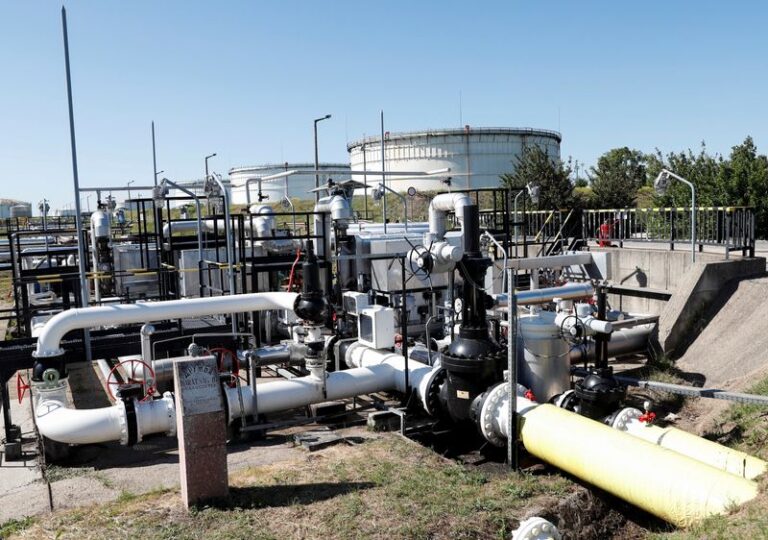PRAGUE/BUDAPEST (Reuters) – Slovakia and Hungary said they would no longer receive oil from their main supplier Lukoil after Ukraine last month imposed a ban on the transit of the Russian energy group’s resources through its territory.
The move highlights the volatile nature of remaining Russian oil supplies to Europe via the Soviet-built Druzhba pipeline, the last functioning major Russian oil supply route to the continent.
Both Slovakia and Hungary said they continued to receive oil from other Russian companies despite the halt in Lukoil deliveries.
Lukoil declined to comment.
Ukrainian state energy company Naftogaz was not immediately available for comment.
The Slovak Economy Ministry announced on Thursday that oil supplies from Lukoil, Russia’s second-largest oil producer, have stopped arriving in Slovakia via Ukraine after the company was placed on a Ukrainian sanctions list.
“According to data from Transpetrol (the Slovak oil carrier), Russian oil deliveries to Slovakia have not been interrupted. The problem, according to Slovnaft (the Slovak refiner), lies in the deliveries of a concrete supplier, Lukoil,” the ministry said.
Slovnaft has secured deliveries from another supplier and the ministry is discussing the issue with Ukrainian partners.
Russia continues to supply natural gas to Europe via Ukraine, despite Moscow’s invasion in February 2022 and the ensuing military conflict, the largest on the continent since World War II.
Hungarian Foreign Minister Peter Szijjarto said on Tuesday that gas supplies from Russia to Hungary were flowing unhindered via the TurkStream pipeline on the Black Sea, but crude oil was no longer being transferred by Lukoil via Ukraine.
“Due to a new legal situation in Ukraine, Lukoil no longer delivers to Hungary, and we are now working on a solution that would allow oil transit to restart because Russian oil is very important for our energy security,” Szijjarto said.
According to industry sources, about 1.1 million tons per month, or about 250,000 barrels per day, of Russian oil were exported through the southern spur of Druzhba, of which about 900,000 tons were divided almost equally between Slovakia and Hungary.
Hungarian energy group MOL (MOLB.BU) has refineries in landlocked Hungary and Slovakia, both of which are supplied by the southern branch of the Druzhba pipeline. The refineries need major investments to diversify its Danube and Slovnaft refineries away from Urals oil.
Szijjarto said on Tuesday that a legal solution MOL is working on would allow Lukoil to transport crude oil to Hungary via Ukraine and Belarus.
(Reporting by Jason Hovet in Prague and Anita Komuves in Budapest; additional reporting by Pavel Polityuk in kyiv; writing by Vladimir Soldatkin in Moscow. Editing by Jane Merriman)


